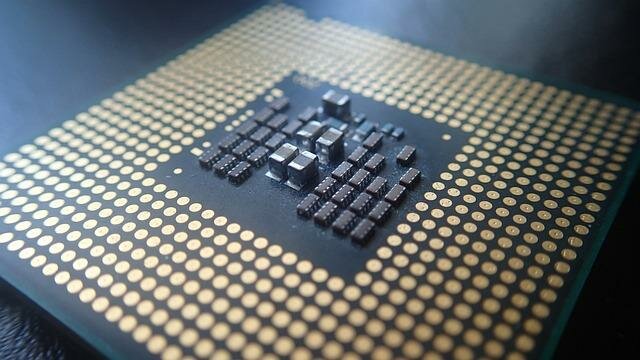Semiconductors Paving the Way for Smarter Cars
Published Date: 16th Mar 2023
 Semiconductors have been used in the automotive industry for several decades, and they have played a critical role in the evolution of cars. As a new car buyer in the UK, it is essential to understand the history of semiconductors in cars and how they have evolved and grown in popularity across all UK vehicle manufacturers.
Semiconductors have been used in the automotive industry for several decades, and they have played a critical role in the evolution of cars. As a new car buyer in the UK, it is essential to understand the history of semiconductors in cars and how they have evolved and grown in popularity across all UK vehicle manufacturers.
In the 1970s, semiconductors were first introduced in cars for simple applications such as power windows and door locks. These basic applications were relatively low-tech, but they paved the way for more advanced applications to come.
Over time, as the technology improved, more advanced applications were developed, and the use of semiconductors in engine control systems began to increase in the 1980s. The introduction of microprocessors allowed for more precise control of the engine, resulting in improved fuel efficiency and lower emissions. By the 1990s, most cars were equipped with electronic engine control systems that relied heavily on semiconductors.
The 2000s saw the emergence of new applications for semiconductors in cars, and the UK car market began to adopt these technologies. Advanced driver assistance systems (ADAS), such as lane departure warning and adaptive cruise control, rely on semiconductors for their operation. The increasing demand for connectivity and infotainment in cars also drove the development of communication systems that use semiconductors.
CHECK OUT OUR LATEST NEW CAR DEALS HERE
Today, semiconductors are essential components in modern cars, and all major UK vehicle manufacturers use them extensively. These chips are used in virtually every aspect of the car's operation, from engine control to lighting and communication systems. As cars become more advanced and rely more heavily on electronics, the role of semiconductors in the automotive industry will continue to grow.
One of the key benefits of semiconductors in cars is their ability to improve safety. ADAS technologies use semiconductors to enable features such as lane departure warning, which alerts drivers when they are drifting out of their lane, and automatic emergency braking, which can help prevent accidents by automatically applying the brakes if a collision is imminent.
Another benefit of semiconductors in cars is their ability to improve fuel efficiency. By using semiconductors in engine control systems, car manufacturers can achieve more precise control of the engine, resulting in improved fuel economy and lower emissions. This benefits the environment and saves drivers money on fuel costs.
 In addition to safety and fuel efficiency, semiconductors have enabled new car features and capabilities. For example, the introduction of LED lighting systems, which rely on semiconductors to convert electrical energy into light, has allowed for more energy-efficient lighting systems. Semiconductors in communication systems have enabled new features such as hands-free calling, wireless charging, and internet connectivity.
In addition to safety and fuel efficiency, semiconductors have enabled new car features and capabilities. For example, the introduction of LED lighting systems, which rely on semiconductors to convert electrical energy into light, has allowed for more energy-efficient lighting systems. Semiconductors in communication systems have enabled new features such as hands-free calling, wireless charging, and internet connectivity.
As the automotive industry continues to evolve and adopt new technologies, the role of semiconductors in cars will only become more critical. With the increasing demand for safety, connectivity, and efficiency, car manufacturers will rely heavily on semiconductors to deliver the features customers demand.
In conclusion, as a New Car Buyer in the UK, it is essential to understand semiconductors' critical role in modern cars. These chips are used in virtually every aspect of the car's operation, from engine control to lighting and communication systems. By enabling new features and capabilities, semiconductors have improved car safety, fuel efficiency, and connectivity. As the automotive industry continues to evolve, semiconductors will play an increasingly critical role in delivering the features that customers demand.
- Semiconductors are essential components in modern cars, and all major UK vehicle manufacturers use them extensively.
- Semiconductors are used in virtually every aspect of the car's operation, from engine control to lighting and communication systems.
- Advanced driver assistance systems (ADAS), such as lane departure warning and automatic emergency braking, rely on semiconductors for their operation.
- Semiconductors in cars can help prevent accidents by alerting drivers when they are drifting out of their lane or automatically applying the brakes if a collision is imminent.
- Semiconductors in engine control systems can achieve more precise control of the engine, resulting in improved fuel economy and lower emissions.
- Semiconductors in communication systems have enabled new features such as hands-free calling, wireless charging, and internet connectivity.
- Semiconductors have enabled the development of LED lighting systems, which are more energy-efficient than traditional lighting systems.
- Semiconductors are essential for the operation of electric and hybrid cars, which rely heavily on electronics.
- Semiconductors are a key component in battery management systems, which help prolong the battery's life and improve its performance.
- As the automotive industry continues to evolve and adopt new technologies, the role of semiconductors in cars will only become more critical in delivering the features that customers demand while keeping them safe on UK roads.
The semiconductor shortage has caused immense frustration for car-buying customers, dealers, and manufacturers alike, with UK car discount spending more time explaining these delays than delivering cars. This shortage continues to affect vehicle specification levels and causes manufacturers to have to compromise on the technologies offered. As a result, buyers turn to manufacturers and retailers with stock or the used market, while manufacturers struggle to offset long lead times.
The shortage has caused production delays, plant closures, and prioritisation of the more profitable markets or certain models, leaving dealers to act as intermediaries and deal with frustrated consumers. The semiconductor and automotive industries are undoubtedly travelling the same road together, and whilst we have seen significant improvements, the shortage is likely to continue for some manufacturers for months to come.
